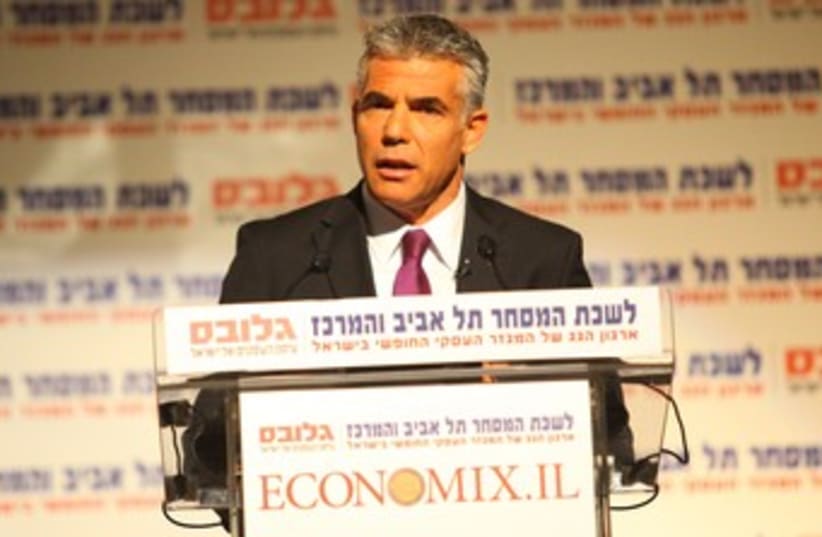Lapid: We won't join bloc to prevent Netanyahu premiership
Yesh Atid leader voices firm support for coalition led by Netanyahu, rejecting Yacimovich's call to form 'obstructionist bloc' with Left, Center and Arab parties; Liberman: Lapid natural fit for Finance Ministry.
